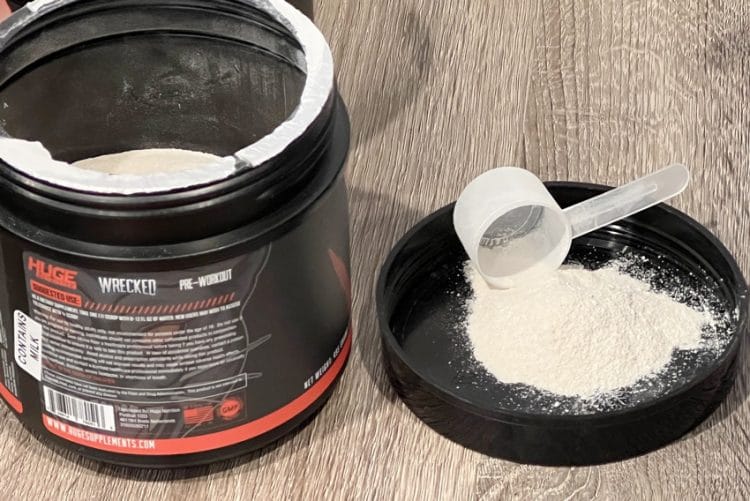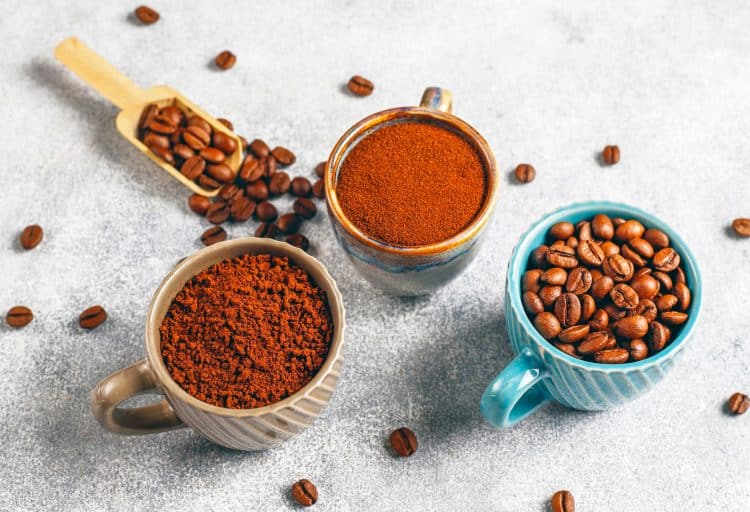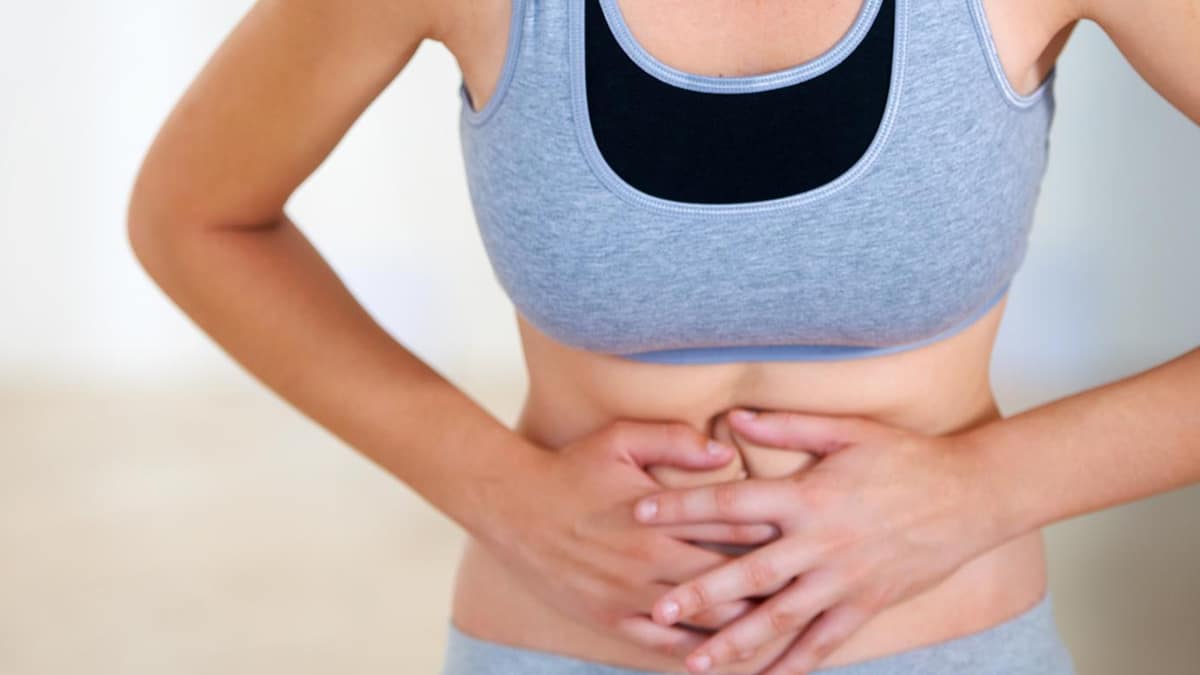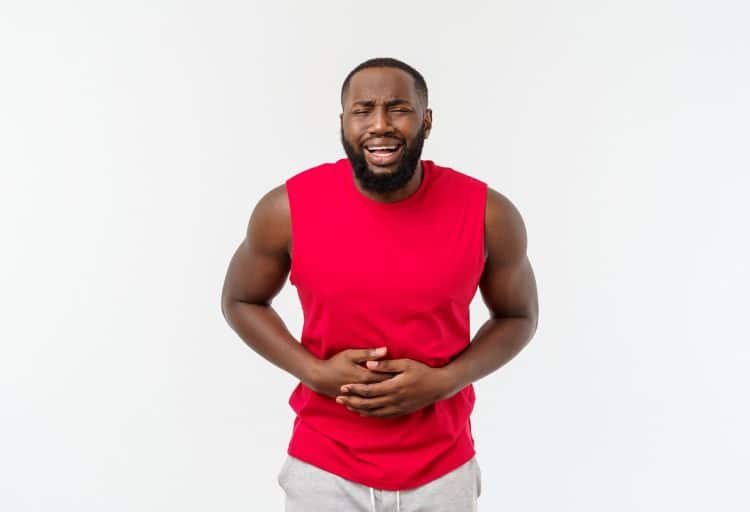Pre-workouts are one of the most popular supplements. They can turn a polite and feeble Bruce Banner into the Incredible Hulk, ready to smash weights in the gym. Pre-workout supps, however, have a dark side that most people avoid discussing. Pre-workout supplements inspire bowel movements.
Many people are uncomfortable talking about the number two issue and feel the problem is with them, not the pre-workout supplement. First, there is nothing serious about wanting to poop after consuming a pre-workout supplement — unless it’s leg day and you cannot reach the bathroom in time. Then, it’ll likely be a disaster.
Stimulants in your pre-workout supp are possibly the reason behind a bloated stomach. So, the urge to poop after taking a pre-workout supp is common, and you can cancel the colonoscopy appointment you booked after buying your first pre-workout supp tub.
Contrary to what most people think, it is not just cheap pre-workout supps that make you want to drop the kids at the pool before heading to the gym. The top-of-the-line pre-training supplements that burn a hole in your wallet promote the same feeling.
What is a Pre-Workout Supplement?

As the name implies, pre-workout supplements are taken before hitting the gym and can help boost your performance. A pre-workout supplement is a concoction of several ingredients. Each ingredient in the supp has a particular role.
Some ingredients enhance your energy levels, endurance, stamina, and focus, and others improve your blood flow, resulting in better muscle pumps. Plus, some pre-workout supplements contain ingredients such as BCAAs and creatine that can kickstart your muscle repair and recovery.
Although most of these ingredients work in harmony, they can sometimes have undesirable effects due to their dosages.
Most lifters take a pre-workout supplement in hopes of tearing it up in the gym. It, however, can have some unexpected effects. Many complain of stomach discomfort 5-10 minutes after taking a pre-workout supp. The result is more common among beginners.
Check Out: 20 Best Pre-Workout Supplements (Review & Ranked)
Why Does Pre-Workout Make You Poop?
Stimulants in a pre-workout supplement are likely the culprit behind making you rush to the loo. Most lifters get a pre-workout supplement so they can power through an intense workout. Stimulants help you achieve this goal.
Pre-training powders are a godsend for lifters who train early morning or late in the evening. Early risers need a stimulant-packed pre-workout supp to wake them up, and the night owls want it to make it through a training session without feeling like a zombie.
Caffeine is the most common stimulant in pre-workout supplements and helps boost your energy level and focus. Caffeine can also boost your brain function, alertness, and liver and colon health, help reduce weight, and lower the risk of developing Alzheimer’s disease. [1][2]
Many sports nutrition companies compete against each other to deliver the highest caffeine dose per scoop. The supp with the highest caffeine per scoop usually wins “the strongest pre-workout supplement” award.
Most pre-workout supps are packed with caffeine to psyche you up for your training session. Caffeine, however, can make you poop. It is why many people depend on a cup of coffee in the morning for a successful trip to the toilet. [3]
Now, if a cup of coffee can make you run to the loo, imagine the potency of a pre-workout supplement. An average cup of coffee contains 80mg of caffeine. Compare this to the monster 150-300mg of caffeine in a scoop of most commercial pre-workout supplements. No wonder you need to hold it in while driving to the gym.
But why does caffeine make you poop?

Caffeine can activate your colon. Furthermore, caffeine enemas are recommended before endoscopy and colonoscopy as they can help prepare the colon by supporting the excretion of bile through the colon wall.
According to a study, caffeinated coffee stimulates the colon 60 percent more than water and 23 percent more than decaffeinated coffee. [4]
According to a different study, caffeine causes muscle contractions in the intestines and bowels, resulting in bowel movements. [5]
Consuming caffeinated pre-workout supplements on an empty stomach can make your bathroom visits more frequent. Food soaks up caffeine, reducing stomach discomfort. You should always consume pre-workout supplements after a meal to avoid feeling poopy. A small snack like an apple or banana can make a big difference.
Other Pre-Workout Ingredients That Can Make You Poop
Although caffeine is the biggest culprit behind toilet trouble after drinking a pre-workout supplement, it would be unfair to put the entire blame on the energy-boosting ingredient. Here are a few other pre-training supp ingredients that can lead to bowel movements:
Sodium Bicarbonate
Many pre-workout supplements use sodium bicarbonate to reduce stomach acid and treat heartburn, indigestion, and upset stomach. Most supplement brands use it to balance the effects of caffeine. The antacid can, however, cause nausea, bloating, and gas.
Artificial Sweeteners
Although you could buy an unflavored whey protein or BCAA supplement, the same isn’t true for pre-workout supplements. Pre-training supps come in exotic flavors such as lemon raspberry, cherry popsicle, cotton candy, pixie dust, etc. Sports supplement companies rely on artificial sweeteners to achieve these mouth-watering flavors.
Artificial sweeteners might make your pre-workout taste amazing, but it stresses your stomach, which could lead to bloating, gas, and bowel movement. Artificial sweeteners can cause discomfort hours after taking a pre-training supplement.
Furthermore, artificial sweeteners can combine with caffeine and overstimulate your colon. It is one of the reasons why you might have to rush to the toilet after taking a pre-workout supplement, even though drinking a cup of coffee doesn’t stress your gut.
Vitamins and Minerals
Most pre-workout supps include micronutrients. These can help boost your immunity and keep you hydrated. Some people are sensitive to certain micronutrients, which can make them take a washroom trip. Vitamin C, magnesium, and some B vitamins (niacinamide, pyridoxine hydrochloride, and methylcobalamin) can have laxative effects. Stick to pre-workout supplements that you can digest.
Yohimbe
Yohimbe is rising in popularity in the fitness community for its energy-boosting ability. It was originally used for treating sexual problems like erectile dysfunction. Yohimbe soon found its way into sports as it boosted blood circulation throughout the body, resulting in better athletic performance and an enhanced mood. Nonetheless, many users experience bowel movements after taking this supplement.
Theobromine
Theobromine is a stimulant found naturally in cocoa and chocolate. It has similar effects as caffeine but doesn’t cause jitters. Many users report the same poopy feeling as caffeine while using theobromine.
DMAA
Many supplement companies include DMAA in their pre-workout supps to boost its effectiveness. DMAA (1,3-dimethylamylamine) is an amphetamine derivative that can help lose weight, improve athletic performance, and build muscle mass. Interestingly, it was initially used as a nasal decongestant.
Amphetamines are stimulants that speed up the messages between your brain and body, which results in alertness and physical activeness. Since DMAA works like a stimulant, some users complain of bloating and the need to rush to the toilet.
Do Stim-Free Pre-Workouts Make You Poop?
Although effective, pre-workout supplements containing stimulants can make you feel jittery, elevate your heart rate, and cause caffeine crashes and frequent bowel movements.
The irresponsible use of stimulants in pre-workouts led to the creation of a new category — stimulant-free pre-workouts.
Since stimulants are the leading cause of bowel movements in pre-workout supps, you can bypass the issue by switching to stim-free pre-training supps.
Sports nutrition companies realized that users despised the side effects of stimulant-laden pre-workout. They, however, also understood that most lifters take a pre-training supp for an energy boost. So, they substituted stimulants with equally-effective ingredients that would help exercisers roll the throttle in the gym.
The result?
Stim-free supps are as effective as stimulant-laden pre-workout supps, minus the jitters, post-training crashes, and recurrent bathroom trips. Stimulant-free pre-workout supplements use nitric boosters and beta-alanine to boost energy levels. These ingredients do not overstimulate your colon.
You should switch to stimulant-free supps if you like the effects of a pre-workout supplement but are fed up with stomach discomfort caused by their stimulated variants.
Related: Best Caffeine-Free Pre-Workout Supplements
How To Reduce Poop Risk After Taking a Pre-Workout Supplement?
Here are a few ways to reduce stomach discomfort after taking a pre-workout supplement:
- Never take a pre-workout supplement on an empty stomach.
- Lower the dose of your pre-workout supplement.
- Try a different pre-workout supplement.
- Reduce caffeine intake throughout the day.
- Stay away from ingredients that do not sit well with your stomach.
- Avoid overlapping ingredients in different supplements.
- Switch to a stimulant-free pre-workout supplement.
Frequently Asked Questions
Do all pre-workout supplements make you poop?
No. Caffeine is the main culprit behind bowel movement in a pre-workout supplement. You can lower the number two risk during your workout by lowering your pre-workout dosage or switching to a stim-free supplement.
Stim-free pre-workouts make me poop; what should I do?
Stomach discomfort after taking a stim-free pre-workout supplement could be due to intolerance for one or more ingredients in the supplement. Try switching to a different stim-free supplement that has other ingredients.
Do all caffeinated pre-workout supplement cause stomach discomfort?
Although all caffeinated supps can increase the risk of pooping during a workout, you could switch to a supplement with a lower caffeine dose to avoid bathroom trips. We recommend sticking to a supplement with no more than 150mg of caffeine per scoop. You could also lower your dosage to stay under this range.
Is pooping after drinking a pre-workout supplement bad?
Bowel movements after consuming a pre-training supp are usually caused by caffeine. Contrary to popular opinion, a trip to the toilet before or during a workout is okay. Training with an empty stomach might make you feel more comfortable while attempting a PR, especially on the squat.
Wrapping Up
Stimulants in pre-workout supplements are the main culprits for bowel movements. They overstimulate the colon and cause stomach discomfort. You should switch to a stim-free pre-workout supplement if you need an energy boost before your training session but cannot tolerate caffeine.
Although pre-workout supplements can help boost your performance in the gym, you shouldn’t be heavily reliant on them for your pre-training nutrition needs. Instead, follow a balanced meal program to meet your daily micro and macronutrient needs.
References
Fitness Volt is committed to providing our readers with science-based information. We use only credible and peer-reviewed sources to support the information we share in our articles.
- Kim ES, Chun HJ, Keum B, Seo YS, Jeen YT, Lee HS, Um SH, Kim CD, Ryu HS. Coffee enema for preparation for small bowel video capsule endoscopy: a pilot study. Clin Nutr Res. 2014 Jul;3(2):134-41. doi: 10.7762/cnr.2014.3.2.134. Epub 2014 Jul 29. PMID: 25136541; PMCID: PMC4135241.
- Santos C, Costa J, Santos J, Vaz-Carneiro A, Lunet N. Caffeine intake and dementia: systematic review and meta-analysis. J Alzheimers Dis. 2010;20 Suppl 1:S187-204. doi: 10.3233/JAD-2010-091387. PMID: 20182026.
- Guest, N.S., VanDusseldorp, T.A., Nelson, M.T. et al. International society of sports nutrition position stand: caffeine and exercise performance. J Int Soc Sports Nutr 18, 1 (2021). https://doi.org/10.1186/s12970-020-00383-4
- Rao SS, Welcher K, Zimmerman B, Stumbo P. Is coffee a colonic stimulant? Eur J Gastroenterol Hepatol. 1998 Feb;10(2):113-8. doi: 10.1097/00042737-199802000-00003. PMID: 9581985.
- Lohsiriwat S, Kongmuang P, Leelakusolvong S. Effects of caffeine on anorectal manometric findings. Dis Colon Rectum. 2008 Jun;51(6):928-31. doi: 10.1007/s10350-008-9271-y. Epub 2008 Mar 19. PMID: 18350336.
Tip: If you're signed in to Google, tap Follow.










